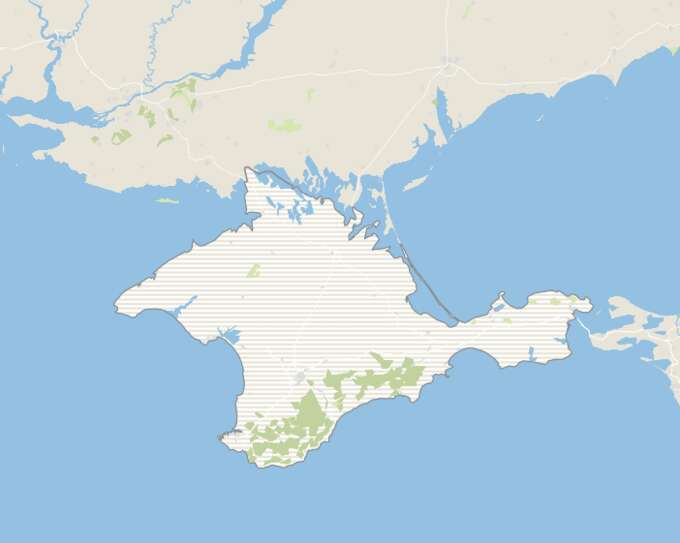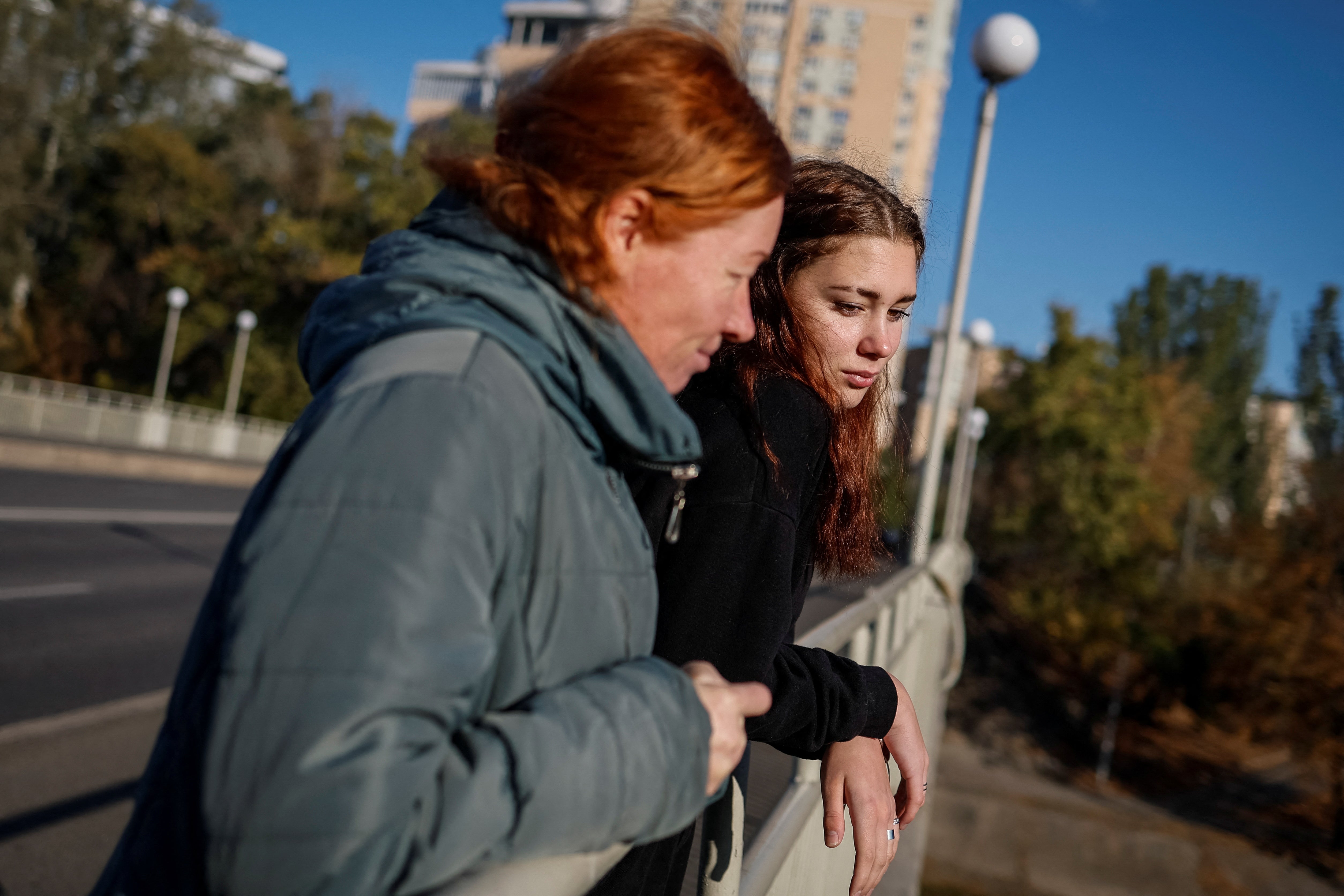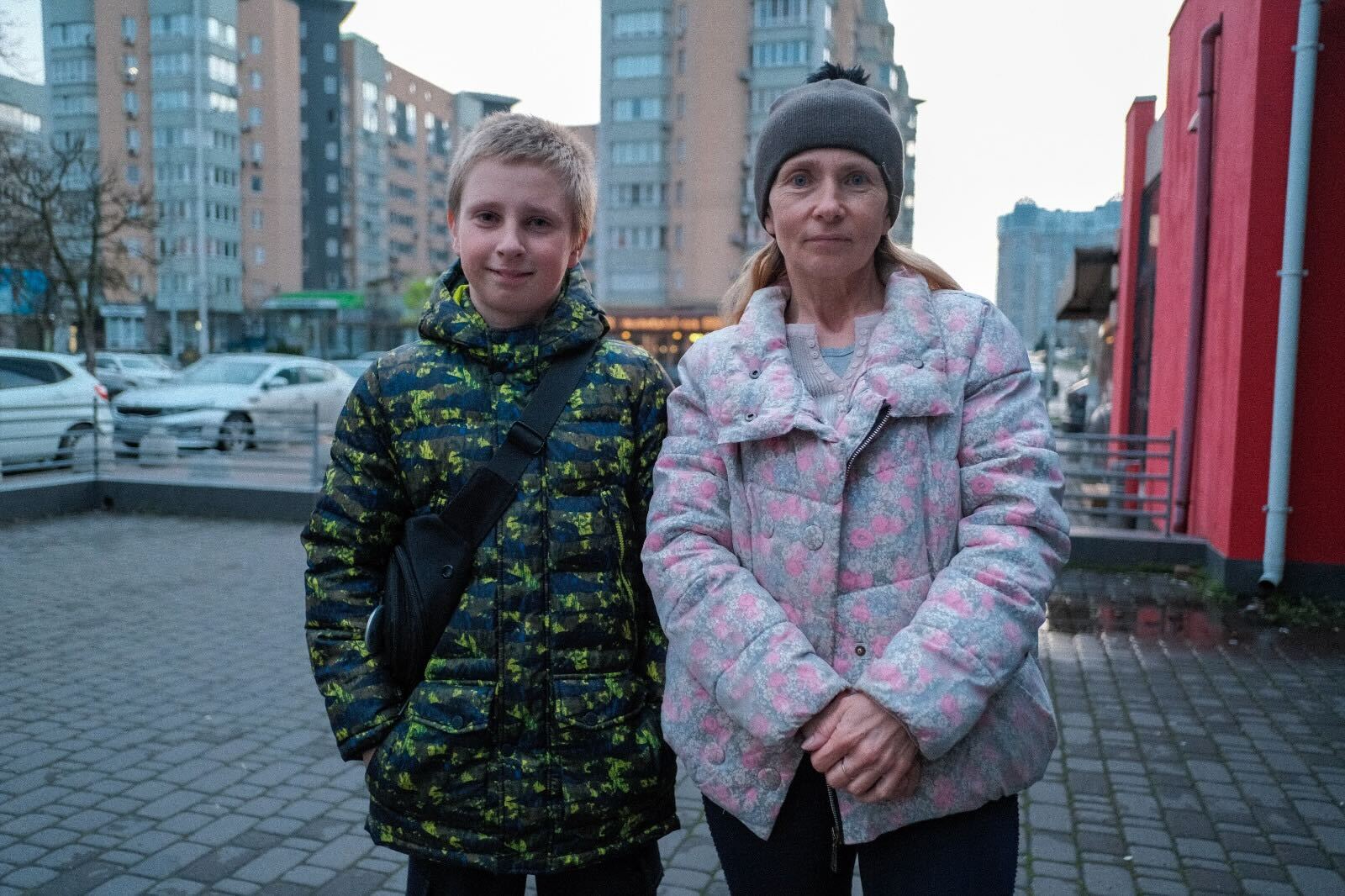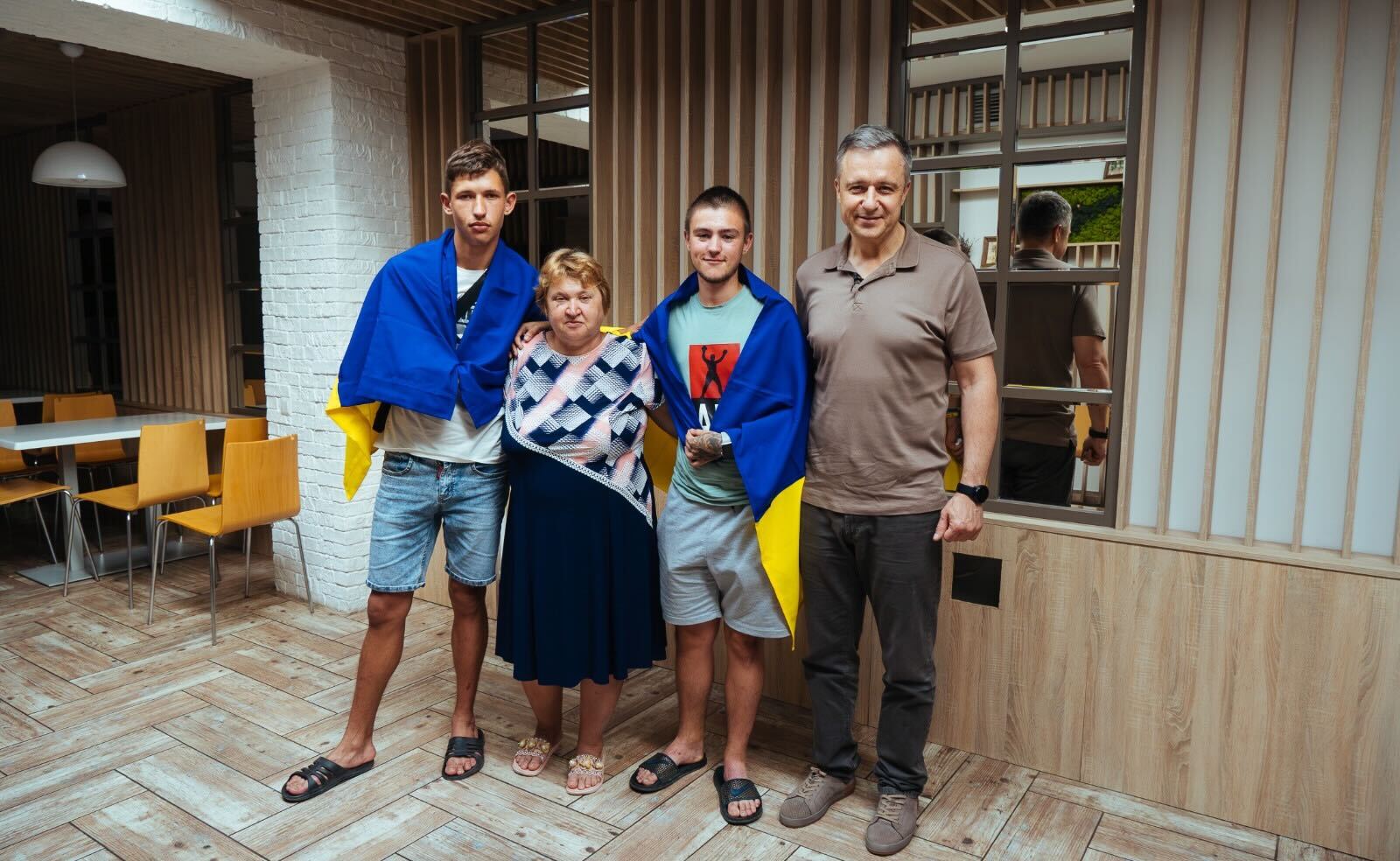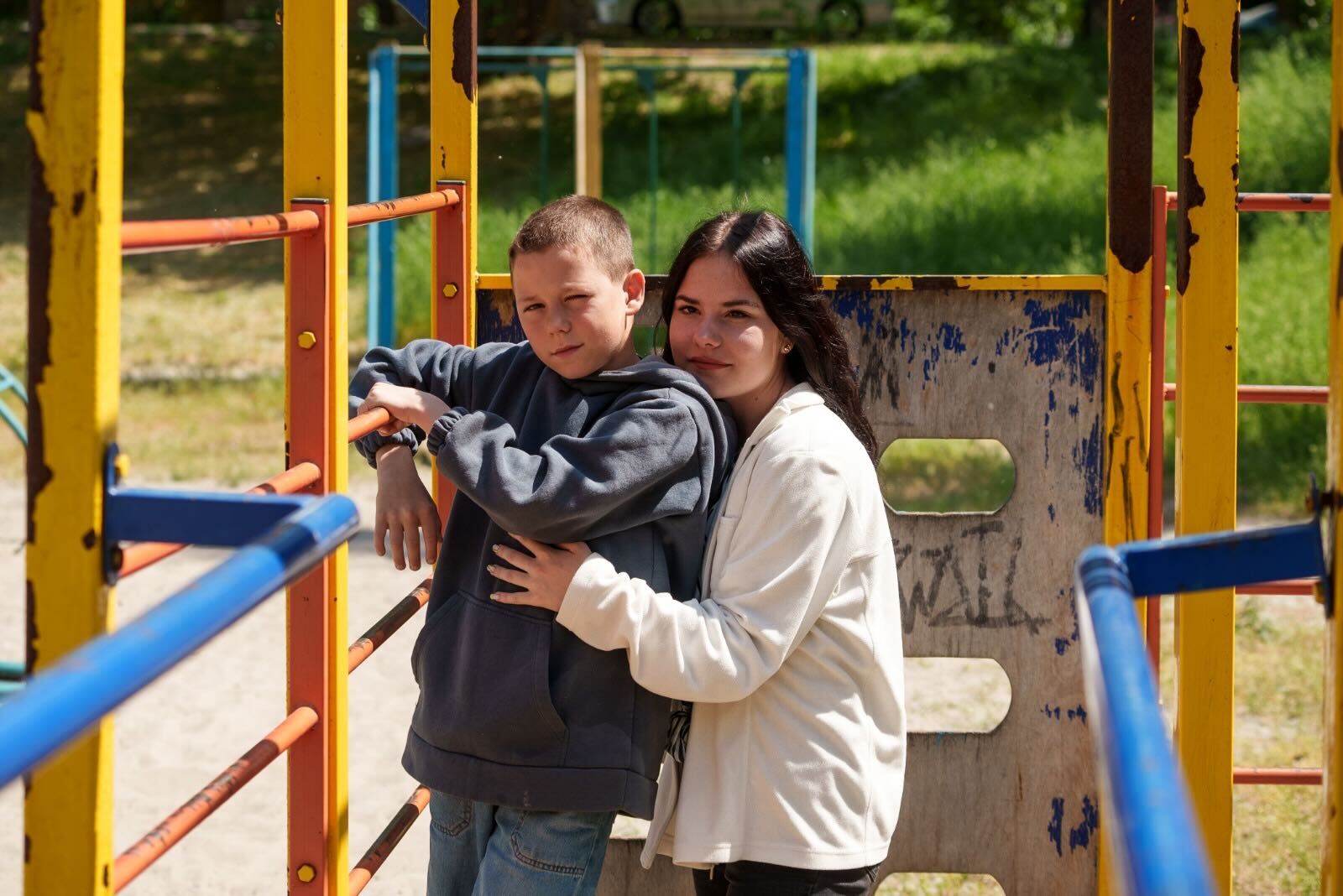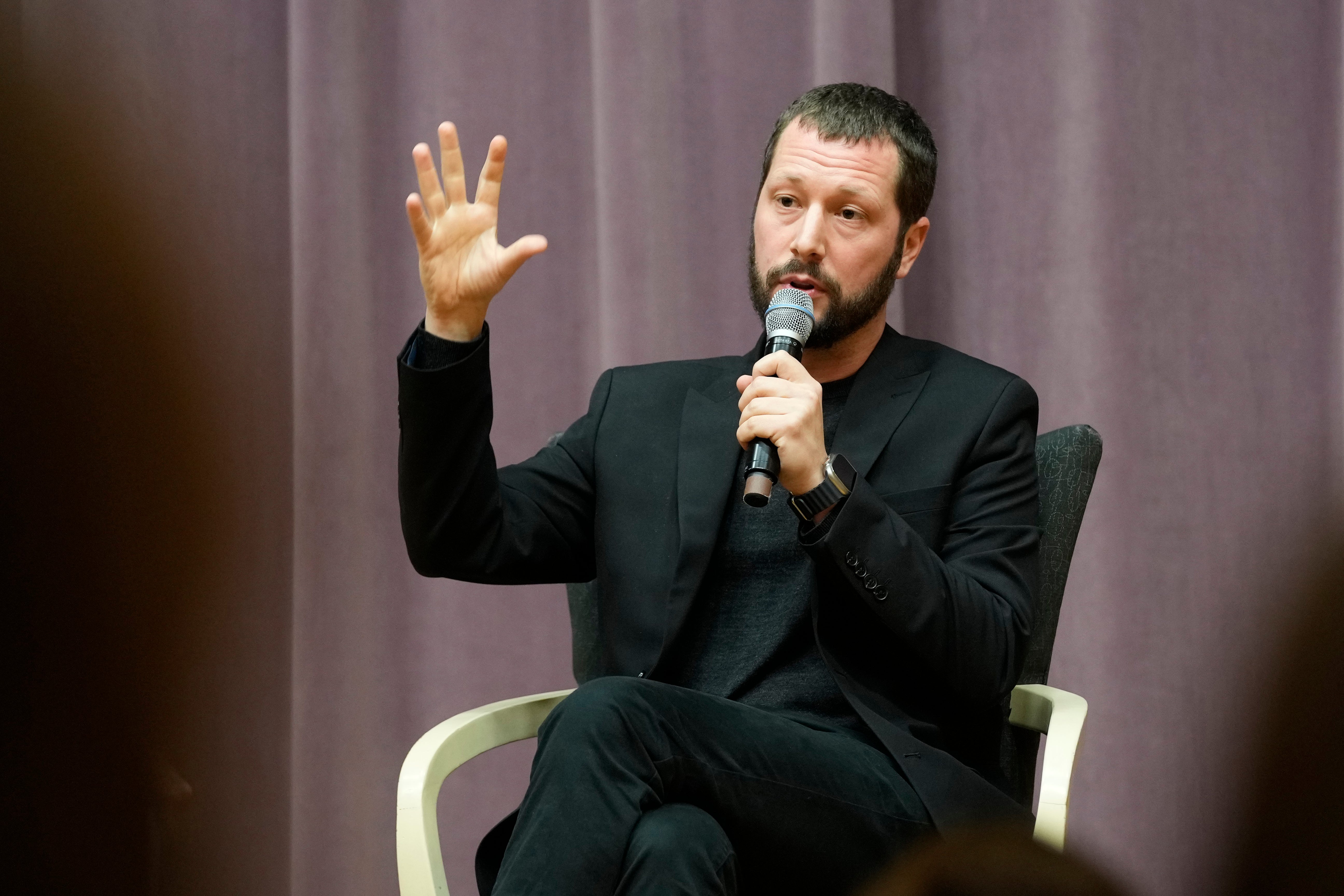Kidnapped, abused, and humiliated – the Ukrainian children taken by Russia
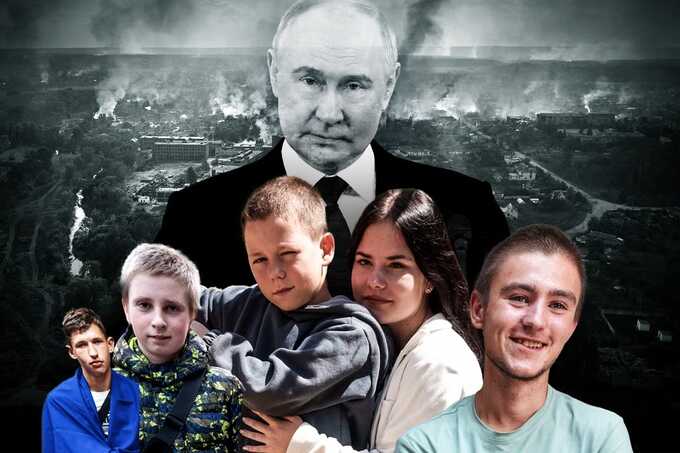
In a special investigation, Tom Watling tells the story of five teenagers who were taken into Russia or Russian-occupied territory before eventually being rescued. Many others are still believed to be trapped
Anastasiia Motychak did not know why Irina – the person in charge of her camp in Russian-occupied Crimea – had just slapped her across the face; she just knew she missed her mum and wanted to go home to the Ukrainian city of Kherson.
It had been two months since the then 15-year-old had been put on a bus and moved from the then Russian-occupied Kherson, in southern Ukraine, to a two-week “vacation camp” in Yevpatoria, western Crimea. Kherson was no place for a child, the Russian soldiers had warned.
Days later, Ukrainian forces liberated the city. But by then, Anastasiia was 150 miles deeper into occupied territory, sleeping in a room with barred windows.
Living in areas held by different military forces, she and her mother soon struggled to communicate; the cell lines between the two cities had been cut.
Then Irina showed up.
The short-tempered teacher would glare at Anastasiia and swear at the children. None of them knew why.
One January evening, after Anastasiia had returned from a walk – something she was allowed to do – her roommate pulled her into their room and told her Irina was looking for her.
Confused, the teenager poked her head out of her room to see if Irina was near. She was.
“She grabbed me and took me into a room nearby,” the teen recalls. “She started swearing, telling me that I would never return home. She said she was sick of me. She said that if I did anything like this again, she would call the police and send me to the Ural mountains in Russia. Then she closed the door and she slapped me across the face.”
Anastasiia still doesn’t know what she did wrong.

Roughly 20,000 Ukrainian children have been moved to such camps since Russia invaded Ukraine in 2022, according to Ukrainian officials. Nearly a quarter of those who have been taken are orphans or children without parental care.
More than 70 camps for forcibly “re-educating” children have been found, according to the Ukrainian government, including in Belarus, occupied Crimea and even far-east Russia, where the children are three times closer to the United States than Ukraine.
The issue of returning these abducted children to Ukraine is set to be the key issue at a peace summit this weekend in Switzerland, led by President Volodymyr Zelensky. Russia has not been invited.
‘We would be punished’
According to reports from the independent Organisation for Security and Co-operation in Europe (OSCE), the so-called camps where the children are taken are anything but a holiday.
When they enter them, the OSCE wrote in May 2023, the youngsters “find themselves in an entirely pro-Russian environment … exposed to a pro-Russian information campaign often amounting to targeted re-education”.
When Anastasiia arrived in the camp in Yevpatoria, she was put into a small, shared room with several other children from Kherson.
She said the pillows on her bed stank and there were cockroaches everywhere, especially in the food hall. “I felt like I was in prison,” she says. “We had balconies in our room but they had bars on them.”
Anastasiia says she was “constantly monitored” during her time in the camp, only ever permitted to go outside under the watchful eye of one of the camp officials, and added that they were often punished for reasons they did not understand.
“We would be punished but we did not know why,” she says. “We didn’t know why they would not let us go. They refused to answer our questions.
“They told us that they would not get a bus to take us home and that we had to get our parents to come and collect us. They kept on repeating and repeating that.”

The OSCE paper added that “the Russian Federation does not take any steps to actively promote the return of Ukrainian children”, despite this being mandated by the Geneva Convention on the treatment of children during war. Instead, the paper said, “it creates various obstacles for families seeking to get their children back”.
Dmytro Lubinets, Ukraine’s human rights commissioner tasked with negotiating the rescue of Ukrainian children from Russia, told The Independent that Moscow officials do “everything they can to block the return” of these tens of thousands of children.
Moscow has repeatedly denied abducting children and has sought to justify its actions by claiming it was done for the protection of the children. But such denials are dismissed by Lubinets.
“Ever since Russia occupied Crimea and part of Donetsk and Luhansk in 2014, all this time, Russia has deported Ukrainian children and violated the rights of civilians,” he said. “We have then had eight years of discussions [to return the children]. Did we have any concrete results? No.
“The only real way we can stop the deportation of Ukranian children is the liberation of all occupied territories of Ukraine. We have no other way.”
Anastasiia is one of only 388 children to have been rescued, according to Children of War, a portal created to track young deported Ukrainians. Only 2 per cent of those taken by Russia have returned, largely because their hometowns were liberated from Russian rule.
Three months after Ukraine freed Kherson, Anastasiia’s mother was able to contact Save Ukraine, a non-profit organisation that helps families travel through Russia to recover their relations. It has helped rescue more than 60 per cent of the children freed so far.
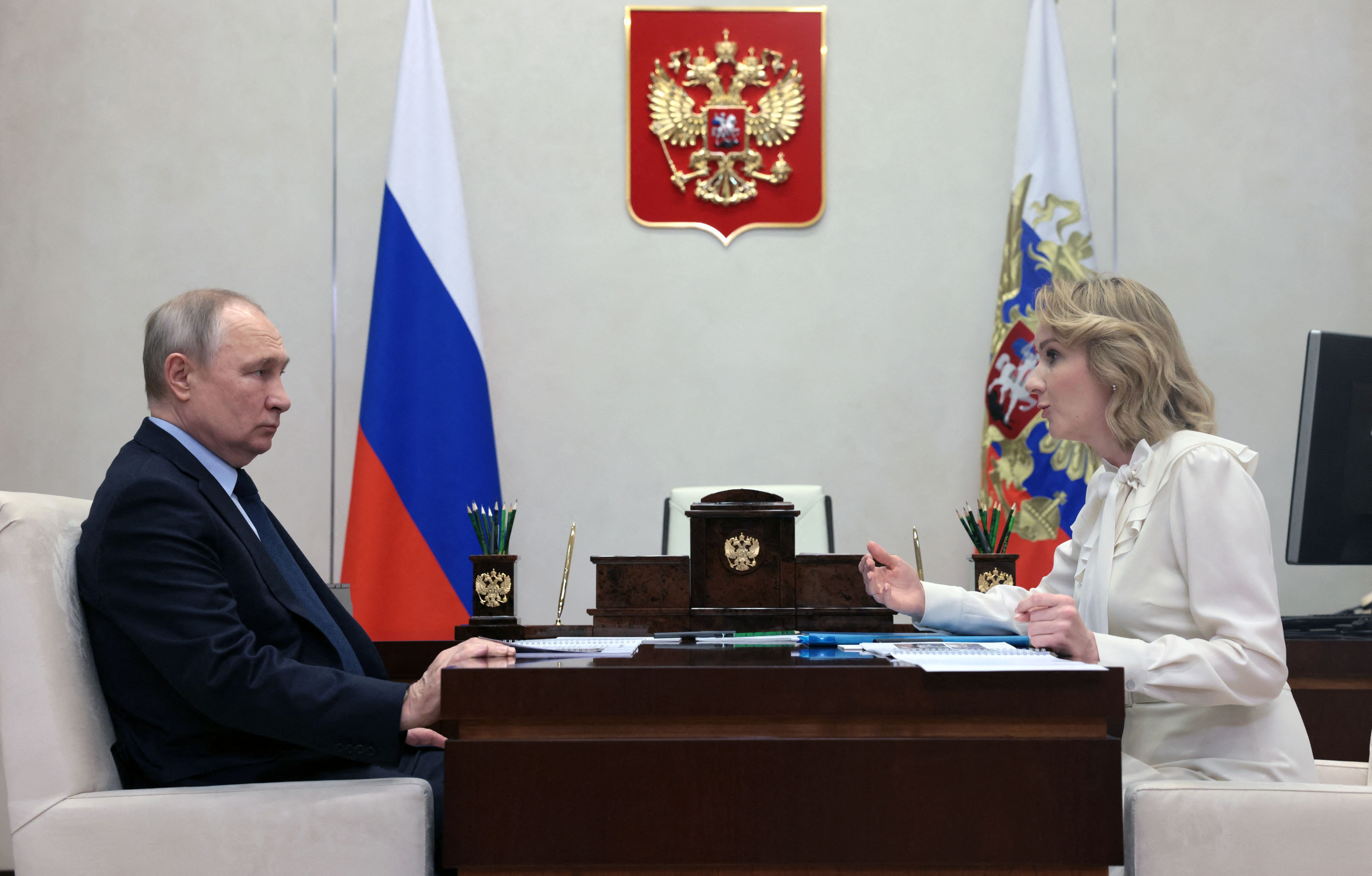
After a 15-day circuitous route around the front line in Ukraine, through Poland, Belarus and southwestern Russia, Anastasiia was reunited with her mum four months after she was taken. That was February 2023.
A month later, the International Criminal Court (ICC) issued arrest warrants against Russian president Vladimir Putin and the Kremlin’s commissioner for children’s rights, Maria Lvova-Belova, who has bragged about “rescuing” a Ukrainian child of her own, then 17-year-old Filip Holovnya.
Prosecutors at the ICC said they had “reasonable grounds” to believe she bore criminal responsibility for acting “directly, jointly with others and/or through others” to deport Ukrainian children to Russia. Putin, they added, has command responsibility. Russia decried the arrest warrants as politically motivated.
Kateryna Rashevska, a legal expert at the Regional Centre for Human Rights in Kyiv who has been advising the United Nations on the camps where children are being held, tells The Independent that the forced deportations are “a sign of Russia’s intent to exterminate our nationhood”.
“For us, for Ukrainians, it is a direct threat to our identity,” she says. “Russia wants to turn our children into enemies of Ukraine.”
‘Why wouldn’t you go?’
The Independent has spoken to five Ukrainian children recovered from Russia, ranging from 12 to 17 years old when they were taken, about their experiences in these “vacation camps”.
All stayed for at least four months, like Anastasiia; at least three stayed for more than eight, well after the ICC issued its arrest warrants in March last year. They were all rescued by Save Ukraine.
Read more similar news:
Comments:
comments powered by Disqus
























